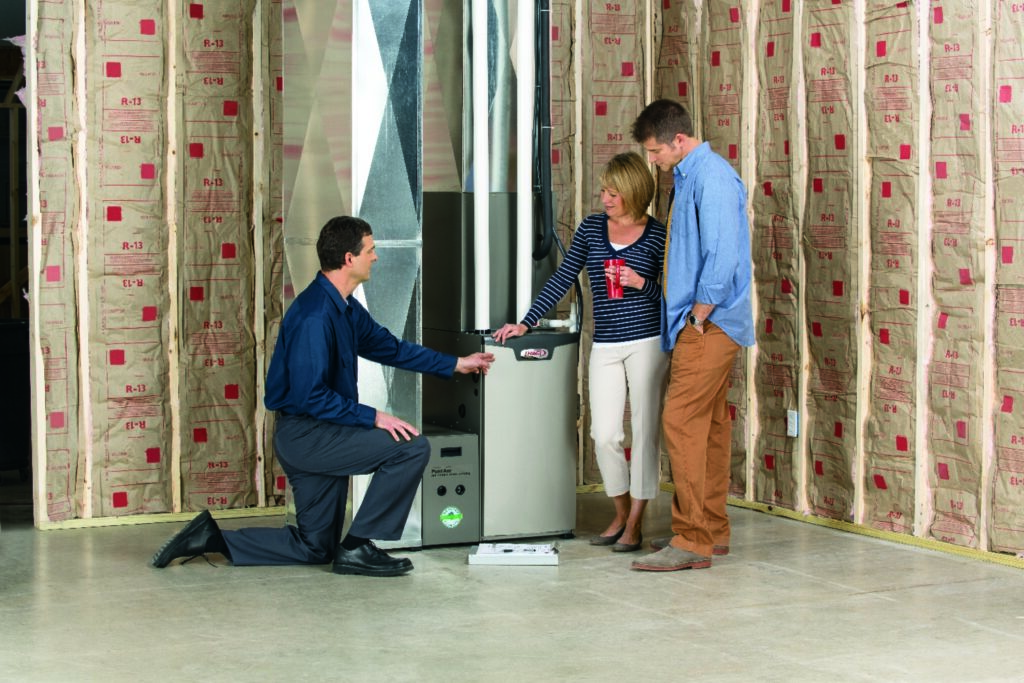Gas vs Oil Furnaces: Which Is Better?
Depending on homeowners’ locations and needs, oil and gas furnaces have advantages and disadvantages. What makes non-electric furnaces fundamentally different is their heating sources: oil and gas. Obtained from refined petroleum, heating oil remains non-viscous at room temperature but thickens when exposed to extreme cold.
Gas furnaces are powered by natural gas or liquefied petroleum gas (propane). Natural gas is delivered to furnaces via pipelines and is more commonly used in commercial and residential furnaces. Homes or businesses that do not have access to natural gas rely on propane to fuel their furnaces. Trucks carrying propane periodically refill propane tanks stored on the property.
Four Advantages of Gas Furnaces
Natural gas is more cost effective than heating oil. The U.S. Energy Information Administration (EIA) has reported that natural gas prices have been significantly lower than oil prices for years. The EIA also says natural gas heating may be as much as 50 percent cheaper than oil.
Natural gas is conveniently delivered to homes and businesses. A system of pipelines delivers natural gas to furnaces, so homeowners and business owners do not have to deal with tanks or running out of heating fuel.
Natural gas furnaces produce fewer emissions than oil-burning furnaces. Although gas furnaces emit detectable amounts of greenhouse gases, oil furnaces emit more significant levels of harmful gases such as carbon dioxide, carbon monoxide and nitrogen oxides.
Modern gas furnaces last 15 to 20 years with proper maintenance. Many oil furnaces are older and experience dirty burners clogged fuel lines and other issues that reduce longevity.
Four Advantages of Oil Furnaces
Produces higher heat output than gas furnaces. Oil-burning furnaces are recommended for use in colder climates where temperatures remain below freezing for extended times.
Oil is nearly always available where heating gas (or a pipeline system) is unavailable. Geographical and infrastructure limitations may restrict the availability of gas for furnaces. Low population density areas with limited customers may also prevent gas companies from investing in pipeline installation.
May be safer to use than gas furnaces. Problems with oil-burning furnaces could be detected more rapidly than problems with gas furnaces. For example, an oil furnace typically produces warning signs before carbon monoxide begins leaking. Gas furnaces may malfunction and leak carbon monoxide before homeowners realize a problem with the unit. https://cookindocs.com/gas-vs-electric-furnace-with-solar/
Continue Working Through Power Outages. Oil-burning furnaces with a mechanical burner or backup power source provide heat when electrical power delivery is disrupted. This makes oil furnaces a better option for people living where power is frequently reduced or down due to extreme weather events or brownouts.
Oil Furnace Maintenance Needs
An oil-burning furnace should have a maintenance check before every winter involving:
- Cleaning and changing of filters
- Inspection and cleaning of the burner assembly
- Inspection of heat exchanger
- Inspection and lubrication of the blower motor
- Inspection of the ignition system
Gas Furnace Maintenance Needs
A maintenance inspection for gas furnaces involves:
- Changing furnace filters (filters should be changed every two or three months, depending on the amount of household pet hair, dust and other debris)
- Removal and cleaning of burners
- Inspection of gas lines for signs of damage or leaks
- Check the burner flame (adjust the flame if necessary)
- Check and calibrate the thermostat (if necessary)
- Inspect venting system
- Check gas connections to ensure the pressure level is correct
Trust Simon’s for All Your Heating and Cooling Needs
Whether you need the repair of a gas furnace or the installation of a new gas furnace, Simons HVAC stands ready to make sure our upstate New York customers in Warren, Washington and Saratoga counties stay warm and cozy in their homes this winter. Free estimates, yearly maintenance plans and 24/7 emergency service are available! Call (518) 955-1051 today to schedule an appointment. mailto:support@simonshvac.com


